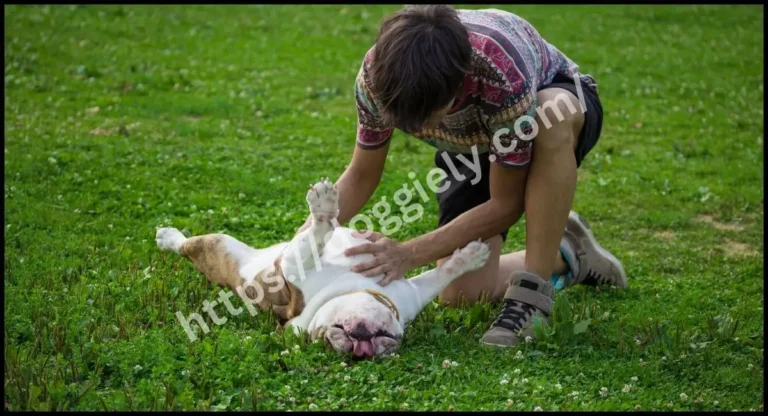Why Do Dogs Nest?

Why Do Dogs Nest? To know the answer, read the full article.
Your dog’s nesting behavior can simply be linked to a desire to getting a good sleeping space. In some cases, it could be due to pregnancy or some other minor medical conditions.
Have you stood and observed your dog for several minutes and then wonder why do dogs nest? Just like several pet owners, you probably managed to shrug the thought off your mind.
However, the truth remains that taking the time to understand our pet dog’s behavior or habits will help us appreciate and see how simple those creatures really can be..
Depending on any of the reasons, you could notice the act is done much more aggressively. Understanding each of these will provide a clue as to what action needs to be taken.
Page Contents
- Causes of Nesting Behavior in Dogs
- Instinct/Comfort
- Pregnancy
- False Pregnancy
- Illness/Injury
- What To Do
- Conclusion
Why Do Dogs Nest?

Causes of Nesting Behavior in Dogs
It would interest you to know that nesting behavior is not peculiar to dogs alone. The same behavioral pattern is also seen in birds, cats, pigs, and even some rodents.
The kind of nesting behavior in dogs sometimes may not be completely the same with other dogs, but it can always be narrowed down to some patterns.
When some dogs nest, they try to drag their dog bed or blankets to a new spot or space they feel will be more comfortable than the previous spot.
Another dog could result in digging in its bed space. Some could so try shredding to add to take to their sleeping room space.
In considering why dogs nest, we can always consider some factors which make our judgment easier.
Instinct/Comfort
Dogs’ nesting is an instinct of most dogs. They do that just to stay comfortable.
Imagine returning from work after a long day; all you would like to do is crawl under that blanket of yours and stay hidden and warm there.
This behavior is said to have been something dogs did – how they lived and provided their own space to spend the night many years back before humans begin to provide them with comfortable living space.
Such that it had now become something natural for dogs to do even though now they are provided with the secure environment they once quested.
That is the reason you would see your dog on that fluffy bed and still feel the need to dig or scratch to get that spot even though it is no longer needed.
Pregnancy
Like humans, when dogs are pregnant, they experience changes in hormones. Some of the notable signs may not be observed until a month after.
Due to this, your dog that ordinarily doesn’t make nests may begin to do so, or your dog whose nesting instinct is minimal now becomes more aggressive or more frequent.
Pregnancy is one indisputable reason why dogs nest, and even other animals that nest too.
In the case of pregnant female dogs, it is always to the intent that the offspring is kept safe and protected from things or circumstances that might serve as a threat.
Such dogs during this period of getting close to delivering her puppies are often very protective. The kind of space it tries to create for the puppy is isolated, calm, and warm.
To the dogs, it’s more of a compelling feeling to prepare for the puppies’ arrival. Consider a scenario a woman who is heavily pregnant decides to go shopping to get things ready for her delivery or even a few baby clothes and materials.
She is so overwhelmed that she prepares everything that crosses her mind since the coming baby is so dear to her. That is the same feeling your female dog gets.
False Pregnancy
Another reason why your dog behaves the way it does is that your dog probably thinks she’s pregnant and therefore tends to behave in the way pregnant dogs do.
In this instance, your dog believes she’s pregnant even without any notable signs or symptoms in the body of the dog.
Normally, some signs are often noted in female dogs that are pregnant; such include weight gain, enlarged mammary glands, nesting, etcetera.
Such false pregnancy behavioral signs are notable from six to eight months of the dog’s last heat.
Although many dog owners don’t widely understand the concept of false pregnancies, it is said to be either linked to some medical conditions in your dog or spaying.
Spaying simply refers to removing the female dog’s ovaries and uterus, which makes it unable to reproduce anymore.
Being spayed doesn’t mean your dog won’t mate; she still would. So, your spayed dog mate with a male dog and now begins to feel she’s pregnant after a while.
Some dogs even take theirs a level higher by gathering and nesting objects, commonly their toys. Depending on the Veterinary doctor, treatment may not be needed to address this because it would stop after some weeks.
Illness/Injury
Like almost any other animal out there, your dog does not possess the intelligence to communicate clearly to you their body conditions and how they feel generally.
Why dogs nest can also be to get your attention or get you to notice some behavioral changes. It could also be due to an illness that recently developed or has been for a while and now getting worse.
Dogs at the early stages of some illness would try to get you to notice because it’s their instinctive nature.
When dogs are ill, they also tend to stay in a more protective environment. The instinct will be to find a safe and secure hiding place even though it is actually in your house or even a closed room.
Also, imagine an injured soldier on the field; what he’d want is a place to lay low and recover. Injured dogs also do this and make it a habit. This wouldn’t always point to illness or some injury, but it is one of the possibilities.
Also, some serious illnesses can cause your dog to go through the false pregnancy phase.
It is said that mastitis (inflammation or mammary gland), liver dysfunction, and hypothyroidism are related to false pregnancy – triggers and causes the dog to think she’s pregnant and then start nesting.
What To Do
For someone who is probably new to keeping pet dogs and still isn’t clear with what to do, you could visit the veterinarian to ascertain the cause and to receive guidance as to the next thing to do. With a few physical examinations, you get to be sure.
Another thing you could do is having your dog stay in a temperature-controlled space.
This could easily be achieved by moving the location of your dog’s bed to the temperature-controlled room or getting a dog bed designed for such behaviors.
There are also several beds already designed for dogs with extreme or excessive nesting habits.
Purchasing such dog beds that are built to withstand such nesting habits could also be effective and will go a long way. I’ve written a post on the best dog beds for nesters, you can check it here.
FAQ
What does it mean when a dog is nesting?
When a dog is nesting, it means it is creating a comfortable and secure space for itself or potential offspring. This behavior is instinctual and often observed in pregnant or mothering dogs.
Why does my dog keep trying to nest?
Your dog may be displaying nesting behavior due to various reasons such as pregnancy, anxiety, or a desire for comfort.
Why is my dog nesting with blankets?
Your dog may be nesting with blankets as a natural instinct for comfort and security.
Why does my dog nest in bed?
Your dog may nest in your bed as a way to bond, seek warmth, or find comfort in your scent. This behavior is often an expression of affection and a desire to be close to you.
Conclusion
Having seen that nesting is a normal behavior for dogs, it makes your dog comfortable and provides more sense of security. Since dogs are great companions and help us relieve stress, the attention and care demonstrated towards them is reciprocated.
So, now that your question of why dogs nest have been answered, your bid would be to provide a solution, as it were, to this behavior. I hope you get the answer of this question: Why Do Dogs Nest?
Like it? Share it!
Related Posts:
Read More: Why Does My Dog Open His Mouth When I Pet Him? 7 Reasons
Read More: Why Does My Dog Keep Sniffing My Legs: 5 Common Reasons
Read More: Why Does My Dog Bite Me In The Morning? 2 Way To safe From
Read More: Why Are My Dogs Balls Black? Best Number 1 Answer
Read More: Why Do Dogs Like Peanut Butter?
Read More: Dogs Eyes Rolling Back: What Does It Mean & Should You Fret?
Read More: 7 Best Dog Bed for Burrowers Reviews In 2024
Read More: 7 Best Dog Beds under $100 In 2024





